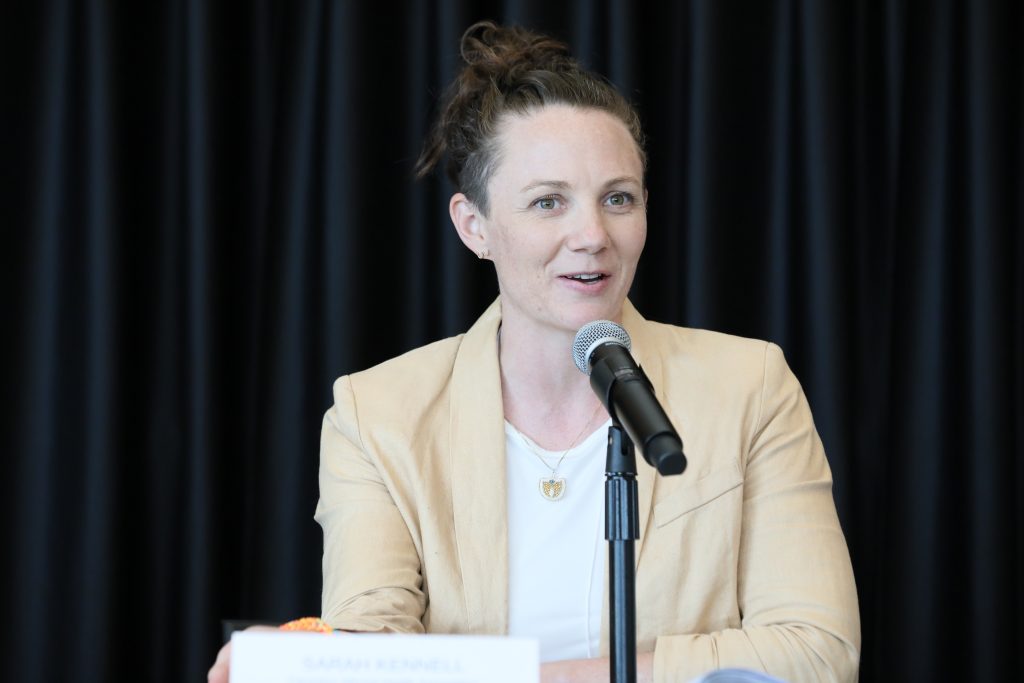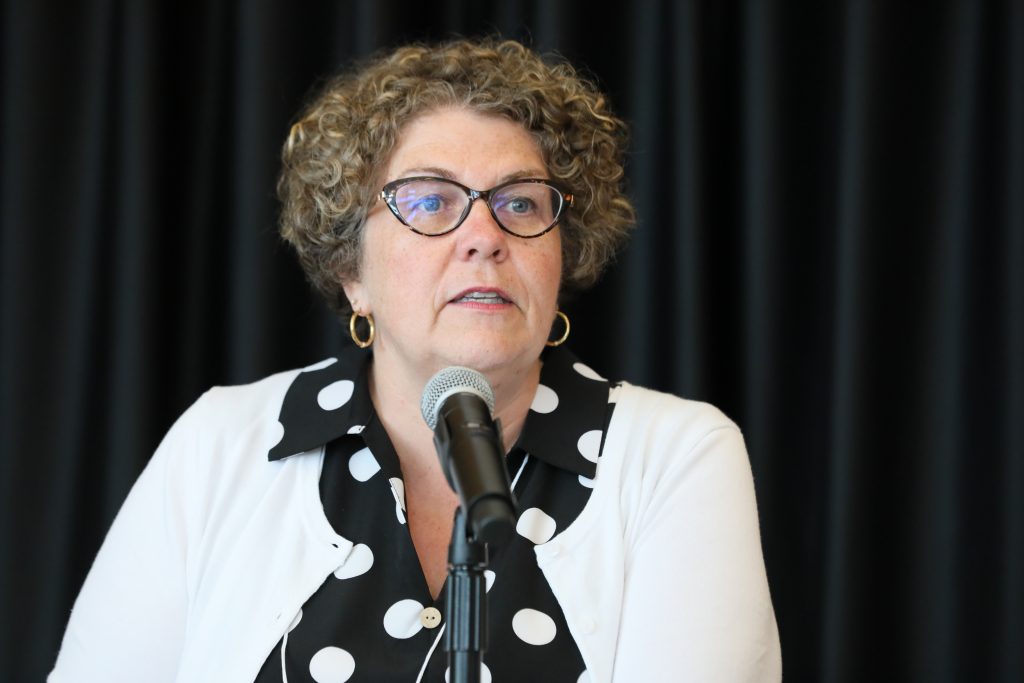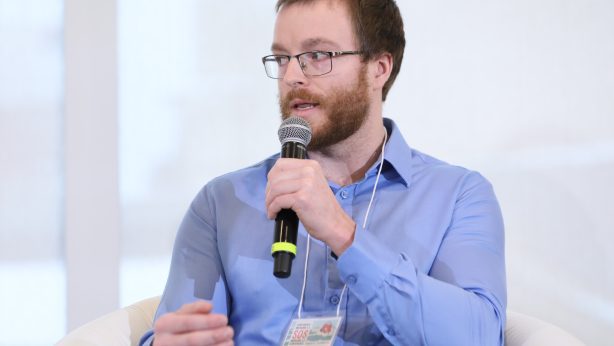Expanding Medicare to be more fair, comprehensive and universal
Health care policy experts gathered in Ottawa in June agree that Medicare remains an unfinished project. With the inception of Medicare came a compromise. Certain health care services considered essential were excluded. Today, Medicare is being expanded to cover certain services, but experts want to see more fairness.
At the Canada Health Act at 40 Research Roundtable on June 20 at the University of Ottawa, panelists David Macdonald from the Canadian Centre for Policy Alternatives, Sarah Kennell from the Canadian Mental Health Association and Suzanne Dupuis-Blanchard from Université de Moncton discussed how to expand Medicare to cover more health services considered essential. The panel is now available for viewing here –
Canada’s dental care plan does not cover everyone
David Macdonald is the senior economist with the national office of the Canadian Centre for Policy Alternative. At the research roundtable, he presented highlights from his January 2023 report, Missing Teeth: Who’s left out of Canada’s dental care plan.

Macdonald argued for removing the $90,000 income threshold that will prevent some 4.4 million people from accessing public dental care.
“Think of a family with two earners making $45,000. Those folks are making $20 an hour. That’s not tremendous income in Canada especially if you’re trying to raise kids,” said Macdonald. “A lot of folks are going to get squeezed out, not because they’re rich, but because they have a full-time job even if it’s not that well-paying.”
While applauding that 8.5 million people, including seniors, children, people with disabilities and working age people, will benefit from the Canadian Dental Care Plan, Macdonald said more than 400,000 children remained without dental insurance in phase one of the roll out of the plan because their family incomes were more than $90,000/year, about one third of children who previously did not have dental insurance.
Macdonald worries the income threshold will not adjust with inflation over time, and as incomes rise, more people will become ineligible for public dental care. Macdonald estimates that about 150,000 people will be kicked out of the plan in four years, if the $90,000 threshold is maintained.
At least one province is saying say the Canadian Dental Care Plan is not needed. In June, Alberta Premier Danielle Smith informed Prime Minister Justin Trudeau that the province will be pulling out of the Canadian Dental Care Plan in 2026. For Macdonald, provincial programs “are universally pretty poor in terms of coverage.”
Mental health care system in Canada continues to fail patients
Sarah Kennell is the National Director of Public Policy with the Canadian Mental Health Association. She spoke on the exclusion of mental health care and substance use treatment as essential health services in the Canada Health Act.

Kennell noted that COVID-19 drew attention to the mental health crisis, but that it existed long before the pandemic. She blames equity-related barriers to accessing comprehensive mental health care on the provinces and territories neglecting to provide such care.
The neglect has birthed the emergence of non-state actors delivering mental health and substance use health services. According to Kennell, such actors “exist on the margins, delivering critical care and yet have to piece together short-term grants, unsustainable funding, that’s patchwork and piecemeal, that doesn’t build long-term sustainability into what we consider to be core health care. It’s also led to the proliferation of passive privatization.”
“I could put up a shingle outside my house and call it an addictions treatment centre,” said Kennell. “There is the complete unregulated, uncontrolled expansion of substance use health treatments that we have no control over, that are charging individuals tens of thousands of dollars for treatment that is not evidence-based and not effective.”
Mental health care provision is a profit-making venture, with a handful of companies making billions of dollars in revenue, noted Kennell.
For Kennell, Canada is failing to meet its human rights obligations, under the Convention on the Rights of Persons with Disabilities, the International Covenant on Economic, Social and Cultural Rights, and the Charter in relation to the rights to life, liberty, and security of the person, the rights to non-discrimination and equality.
“These rights are violated every single day when the only entry point into the mental health system is through the back of a police car or the doors of an emergency department,” said Kennell who noted upstream intervention and primary health care delivered by community providers is far more cheaper to the system.
Nursing Home Without Walls: A New Brunswick health care success story
Suzanne Dupuis-Blanchard is a registered nurse, director of the Centre of Aging and a professor at the School of Nursing at Université de Moncton. She spoke about the need to support aging in place and the nationally-recognized Nursing Home Without Walls program.

Dupuis-Blanchard noted Canada’s population is aging at a rate not seen before, but Canada spends only 5 per cent on home care for older adults when it should be more.
Older adults who live in officially minority language communities (francophones outside Québec and anglophones inside Québec) have great difficulty in accessing home supports and community palliative care, according to Dupuis-Blanchard.
“One in 10 older adults newly admitted to long-term care could have stayed home if the services had been provided to them in their community,” noted Dupuis-Blanchard. “We absolutely have to consider community in that long-term care spectrum and not only institutional care.”
Dupuis-Blanchard is behind the Nursing Home Without Walls program in New Brunswick that aims to support aging in place and combat social isolation and loneliness.
“About 24 per cent of our participants said they avoided going to an emergency room because they knew they could find what they were looking for to age in place through this program and not necessarily at an after-hours clinic or the emergency department,” stated Dupuis-Blanchard.
For Dupuis-Blanchard, the winning aspects of the program are that it is person-centered, collaborative and avoids duplication of services.
The Nursing Home Without Walls program, called a promising practice by Healthcare Excellence Canada, is now active in 20 communities in New Brunswick with an additional 10 sites planned.
Ian Johnson from the audience said he was around when the Canada Health Act was being established, pushing for the inclusion of the kinds of health care discussed by the panelists. He noted the British Medical Journal article that called on Canada to do a national inquiry on its pandemic response following the deaths of 52,750 people directly due to COVID-19.
Dupuis-Blanchard responded, “There have been at least 50 reports written in the last 10 years about the situation in long-term care and population aging that have mostly been ignored. I believe that the pandemic has opened the eyes of the public to the situation around long-term care.”
Lance Livingstone, a Unifor retiree and a member of the Congress of Union Retirees of Canada, shared the story of his mother not being able to afford long-term care. While supporting aging in place, Livingstone noted the need to also “build more affordable long-term care homes for our elderly and get rid of the for-profits.” He referenced the shocking situation at Orchard Villa long-term care home, owned by Southbridge Care Homes and managed by Extendicare, in Pickering, Ontario, where the Canadian military found patients in soiled diapers, eating rotting food and living with cockroaches.
Dupuis-Blanchard responded, “We need to do a better job in the community and offer the appropriate supports not only to older adults but also to the caregivers and the family members.”
This is the fifth blog of a series of eight weekly blogs summarizing what was heard at the Canada Health Act at 40 Research Roundtable at the University of Ottawa on June 20, 2024. The research roundtable was organized by the Canadian Health Coalition and the University of Ottawa’s Centre for Health Law, Policy and Ethics with support from St. Thomas University.
Next week’s blog will discuss the panel on revisiting the Canada Health Act with Y.Y. Chen on how waiting periods affect newcomer health care, Marie Carpentier on the use of international law in fighting for the right to health care, and Martha Paynter on abortion care. Previous webinars can be watched on the Canadian Health Coalition’s Youtube channel.



